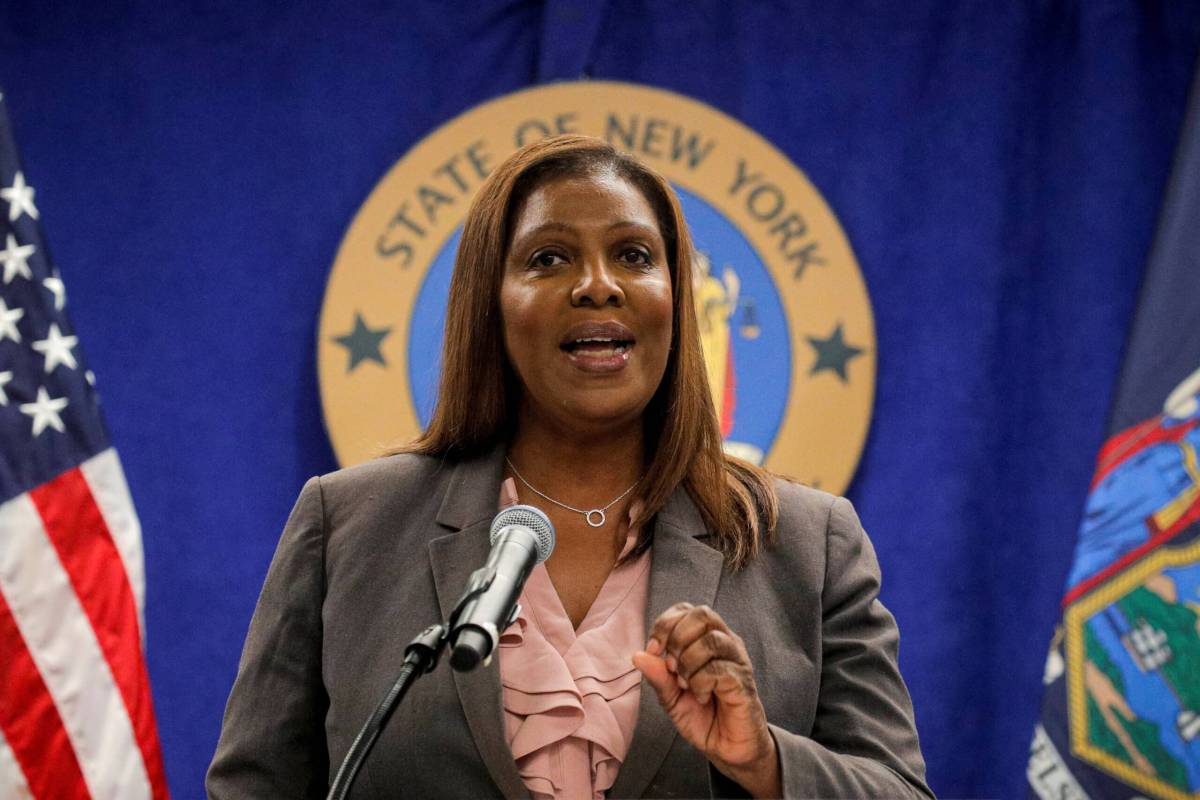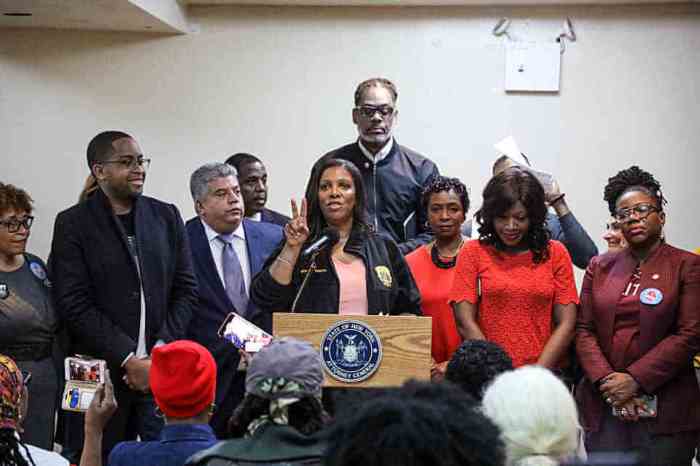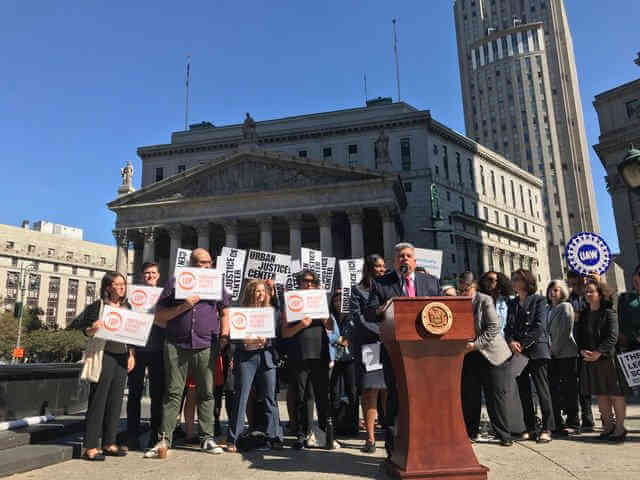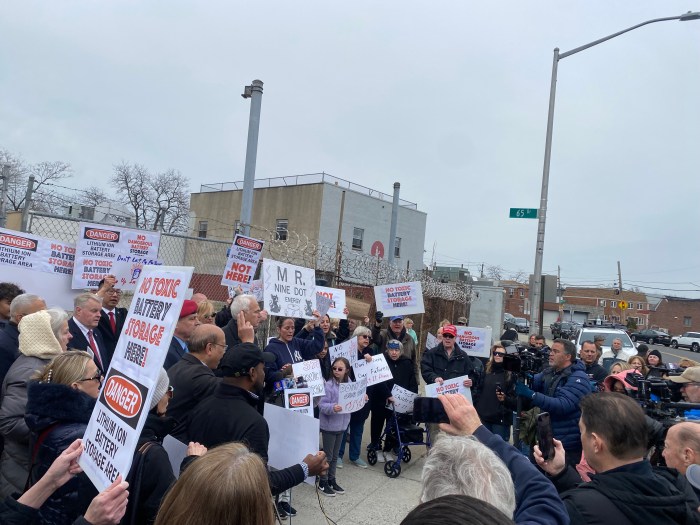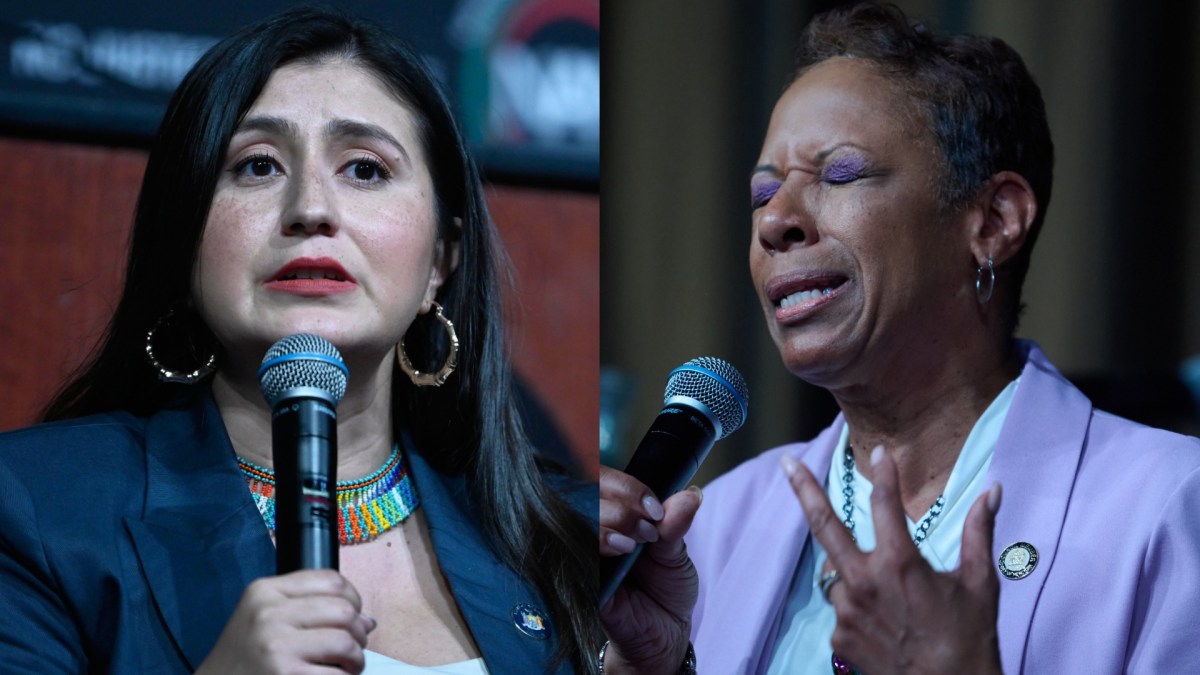New York Attorney General, Letitia James, as part of a coalition of 21 attorneys general, on Wednesday continued her national fight to protect access to reproductive health care.
In an amicus brief filed in the US Court of Appeals for the Fourth Circuit in Planned Parenthood South Atlantic v. Wilson, James and the coalition argued that South Carolina’s “fetal heartbeat” abortion regulations are unconstitutional and jeopardize access to health care as a whole.
Additionally, the coalition argued that the collective impact of numerous states across the country enacting laws restricting or eliminating access to abortion services harms health care nationwide.
The coalition urged the Fourth Circuit to uphold a lower court’s ruling blocking the law.
“With more and more states passing restrictive abortion laws, the constitutional right to access safe and legal abortions is at great risk,” James said. “The unlawful efforts by South Carolina and other states to deny individuals their constitutionally-guaranteed rights through ‘heartbeat’ laws will not go unchallenged.
“I will always do everything within my power to protect our bodies and our choices,” she added.
In February 2021, South Carolina passed the South Carolina Fetal Heartbeat and Protection from Abortion Act, which prohibits abortions upon the detection of an embryonic or fetal heartbeat, effectively banning abortion after six weeks.
Immediately following the passage of the Act, Planned Parenthood South Atlantic filed suit seeking a preliminary injunction, which the federal district court granted. South Carolina appealed that injunction to the Fourth Circuit.
In its amicus brief, the coalition argues that access to safe and legal abortion is an essential component of reproductive health care and restrictive abortion laws, like the South Carolina Fetal Heartbeat and Protection from Abortion Act, lead to worse health outcomes for women.
The coalition also argues that laws banning abortion after the detection of a fetal heartbeat have harmful spillover effects on miscarriage treatment and other health care needs.
Further, the coalition maintains that the restrictions the act places on women could threaten residents of neighboring states as well as those states’ health care systems.
Joining Attorney General James and in filing Wednesday’s amicus brief were the attorneys general of Virginia, California, Colorado, Connecticut, Hawaii, Illinois, Maine, Maryland, Massachusetts, Michigan, Minnesota, Nevada, New Jersey, New Mexico, Oregon, Pennsylvania, Rhode Island, Vermont, Washington and the District of Columbia.
Wednesday’s action is just the latest in a long list of measures James has taken to protect access to reproductive freedom since taking office.
In July 2021, she co-led a coalition of 11 attorneys general in submitting a comment letter to the US Department of Health and Human Services, voicing their support of a new, proposed rule that would protect abortion coverage nationwide.
In June 2021, Attorney General James led a coalition of attorneys general in submitting testimony to the congressional record supporting passage of the Women’s Health Protection Act.
The act would protect the constitutional right to access an abortion by prohibiting unnecessary restrictions — passed at the state level — that undermine the availability and safety of health care services.
Earlier, in June 2021, James and a coalition of attorneys general helped score a major victory in the case Reproductive Health Services v. Parson, after the US Court of Appeals for the Eighth Circuit affirmed a preliminary injunction enjoining a Missouri law that, among other things, banned abortions after as early as eight weeks into pregnancy.
In January 2020, Attorney General James and the coalition filed an amicus brief in the case, challenging the constitutionality of several, recently-enacted abortion bans in the state of Missouri.
In April 2021, James secured an agreement that ended the harassing and obstructive behavior of two anti-choice protesters at a Planned Parenthood location in New York City.
On numerous occasions, the two defendants threatened patients, escorts, and health center staff entering the facility.
The agreement came as a result of a February 2021 lawsuit Attorney General James filed against the two anti-choice protestors for repeated violations of federal, state and local clinic access laws.


